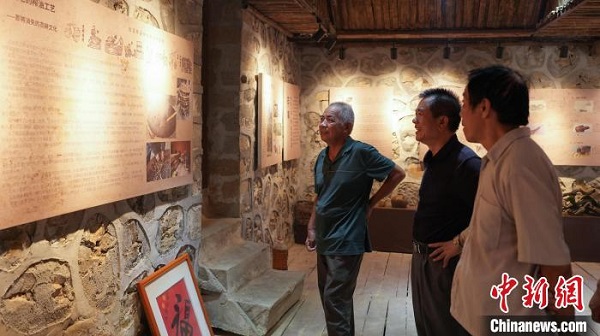Hechi opens museum marking Ancient Tung-Salt Road
The completion ceremony for the first phase of the Ancient Tung-Salt Road Museum was held on July 28 in Nongzhu village, Wuzhuan town, Donglan county, Hechi, Guangxi Zhuang autonomous region.
The Ancient Tung-Salt Road was a folk commercial route located in the northwest of Guangxi, with human porters and horses as the main means of transportation. It had a total length of about 200 kilometers and a history of over 100 years.
Tung oil was a commonly-used raw material in ancient Chinese architecture, shipbuilding and other industries, with huge market demand.
From the Emperor Guangxu period of the Qing Dynasty (1644-1911), Nongzhu village became a well-known center for tung seed oil extraction workshops.
Every year, the tung fruit in the village was gathered to produce tung oil. Then, transported by manpower and horses, it took three days to reach the Tianyang market in Baise city, Guangxi. Tianyang's oil merchants further processed tung oil and transported it by sea or land.
Some of it was sold across the sea to Asian and European countries, while the rest was transported by land to other parts of China.
After selling the tung oil, the oil merchants bought the salt that was in short supply in the mountainous areas of northwest Guangxi and then made the long and arduous journey back. As a result, a tung-salt road was formed.
The remains of five oil extraction workshops were found in Nongzhu village. Since 2016, Wang Youyi, the curator of the new Ancient Tung-Salt Road Museum, has collected and organized over 300 cultural relics, including bamboo weavings, stone tools, coins, pottery, porcelain, New Year's paintings, furniture, labor tools and handicraft tools.
According to Wang, the museum stands on the site of an abandoned house located near a historical site, with great attention paid to detail - from the materials used to the displays. This is the first museum in China named after the Ancient Tung-Salt Road.
Plans are for the museum to be constructed in three phases, with the first phase now complete.
"Next, we plan to restore the historical and cultural relics to their original appearance, as well as establish a comprehensive museum that integrates exhibitions, interactions and cultural creations," Wang said.

Fascinated locals visit the museum. [Photo/China News Service]
Copyright © Hechi Municipal People's Government. All rights reserved.
Presented by China Daily.
京ICP备13028878号-6





